The Microbiology Society are delighted to be hosting the Federation of Infection Societies Conference 2019 (FIS 2019) in Edinburgh between 11–14 November 2019.
This event is a unique conference which includes the collaboration of 16 societies across the UK with interests in different aspects of infectious diseases, clinical microbiology, biomedical science and infection control and provides a great opportunity to find out about the latest developments and to connect with key contacts and networks.
The event will attract over 600 delegates bringing together some of the best and most thoughtful minds from around the world to participate and inform.
FIS 2019 is being held at the Edinburgh International Conference Centre (EICC) and over 4 days will see a programme packed with sessions covering the most important current issues facing infectious disease control, prevention, diagnosis and treatment.
Chair: Professor Sheila Patrick (Queen’s University Belfast, UK)
Chair Elect: Professor Craig Williams (University of the West of Scotland, UK)
(Further announcements to be made)
Confirmed Professional Development sessions
(Further announcements to be made)
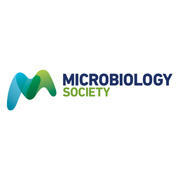
|
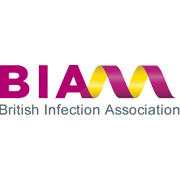
|
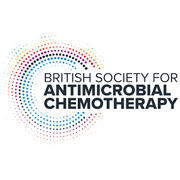
|
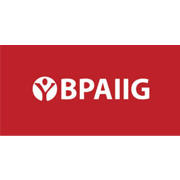
|
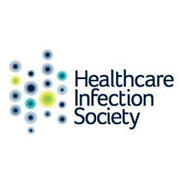
|
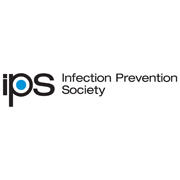
|
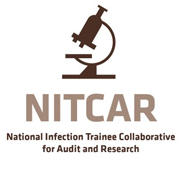
|
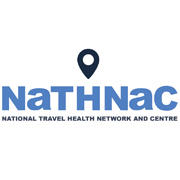
|
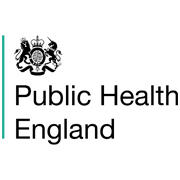
|
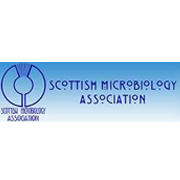
|
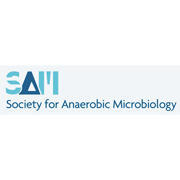
|
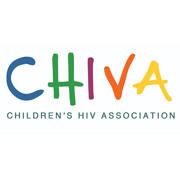
|
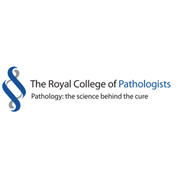
|
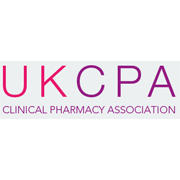
|
You can stay up to date and join the conversation by following us on Twitter @MicrobioSoc #FIS19.
Any questions or enquiries please email [email protected]
Image: evenfh/iStock
This session will be a starting point to foster interactions between trainee and early career microbiologists across the different sectors that the Federation of Infection Societies represents: academic science, clinical, biomedical, nursing and pharmacy trainees. The session will enable knowledge exchange to the mutual benefit of fundamental and applied research in the context of infectious diseases and help attendees to find out about funding opportunities for collaborative research. Refreshments will be available during a networking event at the end of the session.
This session is being organised by the UKCPA - Clinical Pharmacy Association and the British Society for Antimicrobial Chemotherapy
In addressing the antimicrobial resistance challenge, ensuring we have strategies to address antimicrobial prophylaxis as well as treatment is important.
This session will focus on the agents used in antimicrobial prophylaxis, their role in medical and surgical disease areas and the challenges and consequences of inappropriate use. The session will focus on good practice examples together with linking to the new 2019/20 antimicrobial CQUIN.
Tejal Vaghela (Watford General Hospital, UK) and Dr Mark Gilchrist (Imperial College Healthcare NHS Trust, UK)
This session is organised by the Healthcare Infection Society
The burden of diabetic foot infections (DFI) presents many challenges. Infection relapse is common, often with increasingly resistant organisms. There is no clearly superior strategy to tackle the infective problems. The patients are heterogeneous with varying presentations.
Here we present the evolution of an MDT-driven orthopaedic surgical approach utilising local antibiotic delivery via calcium sulphate cement.
We will discuss the approach developed to sampling, surgery and antibiotic delivery. A large case-series of over 90 patients will be reported on, with outcomes. The wider ‘spin-off’ benefits in terms of infection prevention and control and antimicrobial stewardship, will be explored. From the same centre, we will contrast with a clinician-led approach, using prolonged IV antibiotics largely via OPAT, with the aim of avoiding the need of surgery. As well as case selection for oral antibiotics in osteomyelitis of DFI.
The session will also include expert opinion from the working party on the 2019 infection guidelines produced by the International Working Group on the Diabetic Foot.
David Harvey (Wirral University Teaching Hospital NHS Foundation Trust, UK)
This session is being organised by the British Paediatric Allergy Immunity and Infection Group
Back by popular demand after the success of their sessions in 2017 and 2018, Sanjay and Stephane will be presenting interactive paediatric cases not dissimilar to those that may be encountered by microbiologists and adult ID specialists!
Sanjay Patel (Southampton Children’s Hospital, UK) and Stephane Paulus (Oxford Children’s Hospital and Convenor of BPAIIG, UK)
This session is being organised by the Scottish Microbiology Association
Around 75% of human pathogens have an animal origin. Ecological and evolutionary changes can have significant impacts on zoonotic infections, with many emerging, re-emerging or increasing in importance, and this session will cover a diverse range of some of these. The invited speakers will focus on zoonoses associated with three very different sources – Lyme disease, increasing risks from the handling of raw pet food and organisms encountered following bite-wounds and other zoonotic infections from marine mammals.
Professor Andrew Smith (University of Glasgow, UK) and Geoffrey Foster (SRUC Veterinary Services, UK)
This session is being organised by the British Society for Medical Mycology and will focus on the emerging fungal pathogen Candida auris.
Dr P. Lewis White (University Hospital of Wales, UK, on behalf of the British Society for Medical Mycology)
This session is being organised by the UKCPA - Clinical Pharmacy Association and the British Society for Antimicrobial Chemotherapy
In addressing the antimicrobial resistance challenge, ensuring we have strategies to address antimicrobial prophylaxis as well as treatment is important.
This session will focus on the agents used in antimicrobial prophylaxis, their role in medical and surgical disease areas and the challenges and consequences of inappropriate use. The session will focus on good practice examples together with linking to the new 2019/20 antimicrobial CQUIN.
Tejal Vaghela (Watford General Hospital, UK) and Dr Mark Gilchrist (Imperial College Healthcare NHS Trust, UK)
This session is organised by the Healthcare Infection Society
The burden of diabetic foot infections (DFI) presents many challenges. Infection relapse is common, often with increasingly resistant organisms. There is no clearly superior strategy to tackle the infective problems. The patients are heterogeneous with varying presentations.
Here we present the evolution of an MDT-driven orthopaedic surgical approach utilising local antibiotic delivery via calcium sulphate cement.
We will discuss the approach developed to sampling, surgery and antibiotic delivery. A large case-series of over 90 patients will be reported on, with outcomes. The wider ‘spin-off’ benefits in terms of infection prevention and control and antimicrobial stewardship, will be explored.
From the same centre, we will contrast with a clinician-led approach, using prolonged IV antibiotics largely via OPAT, with the aim of avoiding the need of surgery. As well as case selection for oral antibiotics in osteomyelitis of DFI.
The session will also include expert opinion from the working party on the 2019 infection guidelines produced by the International Working Group on the Diabetic Foot.
David Harvey (Wirral University Teaching Hospital NHS Foundation Trust, UK)
This session is being organised by the British Paediatric Allergy Immunity and Infection Group
Back by popular demand after the success of their sessions in 2017 and 2018, Sanjay and Stephane will be presenting interactive paediatric cases not dissimilar to those that may be encountered by microbiologists and adult ID specialists!
Sanjay Patel (Southampton Children’s Hospital, UK) and Stephane Paulus (Oxford Children’s Hospital and Convenor of BPAIIG, UK)
This session is being organised by the Scottish Microbiology Association
Around 75% of human pathogens have an animal origin. Ecological and evolutionary changes can have significant impacts on zoonotic infections, with many emerging, re-emerging or increasing in importance, and this session will cover a diverse range of some of these. The invited speakers will focus on zoonoses associated with three very different sources – Lyme disease, increasing risks from the handling of raw pet food and organisms encountered following bite-wounds and other zoonotic infections from marine mammals.
Professor Andrew Smith (University of Glasgow, UK) and Geoffrey Foster (Scottish Microbiological Association, UK)
This session is being organised by the Microbiology Society
The diagnosis and treatment of biofilm infection, particularly in the orthopaedic setting, remains a challenge. Surgical wound contamination from patient’s skin can not only be a cause of biofilm infection but has the potential to confound diagnosis of chronic infection. The current guidelines on the diagnosis and subsequent treatment of implant biofilm infection will be addressed and debated.
Professor Sheila Patrick (Queen’s University Belfast, UK) and Professor Craig Williams (University of the West of Scotland, UK)
CHIVA's achievements and future challenges.
Fiona Shackley (Sheffield Children's NHS Foundation Trust) on behalf of CHIVA committee
This session is being organised by the British Infection Association
This session will develop the theme around neglected tropical diseases. These diseases occur mostly in very resource poor settings. The conditions largely affect the poorest people and therefore go unnoticed and are 'neglected'. There are a number of diseases that are included in this group and this symposium will concentrate on the innovative management of Filarisis,Trachoma and Leprosy.
Hiten Thaker (Hull and East Yorkshire Hospitals NHS Trust, UK)
This session is being organised by the UKCPA - Clinical Pharmacy Association and the British Society for Antimicrobial Chemotherapy
This session will explore the antimicrobial stewardship considerations during end of life care and will focus specifically on the approach to decision making, risk and benefits to initiating treatment and a patient perspective.
The session will also help inform the audience and healthcare users around this sometimes challenging situation.
Tejal Vaghela (Watford General Hospital, UK) and Dr Mark Gilchrist (Imperial College Healthcare NHS Trust, UK)
This session is being organised by the Microbiology Society
The diagnosis and treatment of biofilm infection, particularly in the orthopaedic setting, remains a challenge. Surgical wound contamination from patient’s skin can not only be a cause of biofilm infection but has the potential to confound diagnosis of chronic infection. The current guidelines on the diagnosis and subsequent treatment of implant biofilm infection will be addressed and debated.Professor Sheila Patrick (Queen’s University Belfast, UK) and Professor Craig Williams (University of the West of Scotland, UK)
CHIVA's achievements and future challenges.
Fiona Shackley (Sheffield Children's NHS Foundation Trust) on behalf of CHIVA committee
This session is being organised by the British Infection Association
This session will develop the theme around neglected tropical diseases. These diseases occur mostly in very resource poor settings. The conditions largely affect the poorest people and therefore go unnoticed and are 'neglected'. There are a number of diseases that are included in this group and this symposium will concentrate on the innovative management of Filarisis, Trachoma and Leprosy.
Hiten Thaker (Hull and East Yorkshire Hospitals NHS Trust, UK)
This session will present interactive clinical case presentations selected from submitted abstracts. Audience participation will be encouraged by the Chairs who are experienced clinicians.
Dr Hiten Thaker (Hull and East Yorkshire Hospitals NHS Trust, UK)
This session is being organised by the Microbiology Society
Humans host thriving microbial communities which have been recognised since the early days of microbiology as a source of potentially lethal opportunistic pathogens and chronic infection. More recent metagenomic and metataxonomic analyses of these microbiotas provide detailed insights into the microbes present and an indication of their relative abundance. These studies have led to a growing list of potential microbiota-health associations, from autoimmune disease to mental health and obesity. In addition, there is a growing interest in faecal microbiota transplant treatment, with considerable success in relation to C. difficile infection. This symposium will address the microbiota in relation to infection and reflect on the evidence for selected microbiota-health associations. Offered papers relating to any aspect of the human microbiota, including faecal microbiota transplant treatment, will be considered for oral presentation within the symposium.
Professor Sheila Patrick (Queen’s University Belfast, UK) and Dr Alan Walker (University of Aberdeen, UK)
This session is being organised by the Healthcare Infection Society
The accessibility of Big Data in healthcare has opened the door to a wide variety of possibilities for infection prevention control and in antimicrobial stewardship. The drive towards digitalisation of a complete electronic patient record by the NHS had brought together previously disparate clinical data that can now be linked using health informatics expertise. Developments in machine learning are promising greater in-depth analysis of large volumes of complicated infection data, unveiling hidden transmission networks and the early detection of hospital outbreaks. Projects at national, regional and hospital level have demonstrated the benefit in engaging with health informatics that will allow clinicians to better understand their local and national epidemiology, to facilitate outbreak detection and addressing increasing problems posed by AMR. During this session national and international experts will discuss the implementation of health informatics projects and how this can be translated in a meaningful way to deliver effective Infection Prevention Control.
Dr Jasmin Islam (Brighton and Sussex University Hospitals, NHS Trust, UK) and Dr Luke Bedford (Ipswich Hospital NHS Trust, UK)
This session is be organised by the National Travel Health Network and Centre
The sessions will cover current epidemiology, UK traveller cases, and factors that health professionals should consider when advising travellers for each disease. For all three diseases, there are unique challenges in terms of risk perception, risk tolerance and communication. In the case of traveller malaria, although almost completely preventable, imported cases remain a concern particularly for UK residents of African or Asian ethnicity who are non-UK born and going to visit family. For Zika, what should we advise pregnant travellers? Zika has now been reported over 80 countries and territories, but surveillance data is limited in many parts of the world. Finally, the recent case of imported rabies in a UK resident following a cat bite highlights the importance of good pre-travel advice, but also effective post exposure management.
Dipti Patel (NaTHNaC, UK) and Dr Nick Beeching (University of Liverpool, UK)
This session is being organised by the British Infection Association and the British Society for Antimicrobial Chemotherapy
Aminoglycosides are a critical antimicrobial option for many infections. However more recently questions are been raised as to what is the most effective dose?
Some studies suggest that the under-dosing of aminoglycosides is a concern however this needs to be balanced against the potential unintended consequences of this group of antimicrobials.
This session will explore the PK/PD of aminoglycoside use and look at the impact of conflicts in current breakpoint recommendations between the BNF and EUCAST.
The invited papers will offer an ‘into clinical practice’ perspective, showing the benefits and pitfalls of aminoglycoside use, both single and combinations therapies.
Hiten Thaker (Hull and East Yorkshire Hospitals NHS Trust, UK) and Dr Mark Gilchrist (Imperial College Healthcare NHS Trust, UK)
In 2016, NICE was commissioned by the Department of Health and Social Care to produce clinical syndrome- specific guidelines for managing common infections, with the aim of guiding appropriate use of antimicrobials and minimising antimicrobial resistance. A standing committee of experts is producing the guidelines and is working closely with Public Health England. The members of the committee will present and discuss the latest guidelines published in 2019.
Dr Mitul Patel (Birmingham Women’s and Children’s NHS Foundation Trust, UK)
This session is being organised by the Microbiology Society
Humans host thriving microbial communities which have been recognised since the early days of microbiology as a source of potentially lethal opportunistic pathogens and chronic infection. More recent metagenomic and metataxonomic analyses of these microbiotas, along with fluorescence microscopy, provide detailed insights into the microbes present and an indication of their relative abundance. These studies have led to a growing list of potential microbiota-health associations, from autoimmune disease to mental health and obesity. This symposium will address the microbiota in relation to infection and reflect on the evidence for selected microbiota-health associations.
Professor Sheila Patrick (Queen’s University Belfast, UK) and Dr Alan Walker (Univeristy of Aberdeen, UK)
This session is being organised by the Healthcare Infection Society
The accessibility of Big Data in healthcare has opened the door to a wide variety of possibilities for infection prevention control and in antimicrobial stewardship. The drive towards digitalisation of a complete electronic patient record by the NHS had brought together previously disparate clinical data that can now be linked using health informatics expertise. Developments in machine learning are promising greater in-depth analysis of large volumes of complicated infection data, unveiling hidden transmission networks and the early detection of hospital outbreaks. Projects at national, regional and hospital level have demonstrated the benefit in engaging with health informatics that will allow clinicians to better understand their local and national epidemiology, to facilitate outbreak detection and addressing increasing problems posed by AMR. During this session national and international experts will discuss the implementation of health informatics projects and how this can be translated in a meaningful way to deliver effective Infection Prevention Control.
Dr Jasmin Islam (Brighton and Sussex University Hospitals, NHS Trust, UK) and Dr Luke Bedford (Ipswich Hospital NHS Trust, UK)
This session is being organised by the British Infection Association and the British Society for Antimicrobial Chemotherapy
Aminoglycosides are a critical antimicrobial option for many infections. However more recently questions are been raised as to what is the most effective dose?
Some studies suggest that the under-dosing of aminoglycosides is a concern however this needs to be balanced against the potential unintended consequences of this group of antimicrobials.
This session will explore the PK/PD of aminoglycoside use and look at the impact of conflicts in current breakpoint recommendations between the BNF and EUCAST.
The invited papers will offer an ‘into clinical practice’ perspective, showing the benefits and pitfalls of aminoglycoside use, both single and combinations therapies.
Hiten Thaker (Hull and East Yorkshire Hospitals NHS Trust, UK) and Dr Mark Gilchrist (Imperial College Healthcare NHS Trust, UK)
This session is being co-organised by the Society for Anaerobic Microbiology (SAM), the Microbiology Society and the UK Anaerobe Reference Unit (UKARU).
Anaerobic bacteria are increasingly associated with new disease presentations and processes. This session will give insights into different aspects of C. difficile infection (CDI) from Paediatric CDI to delivering a UK wide Faecal Microbiota Transplantation (FMT) service & the role of FMT in treating multi-drug resistant organisms (MDRO). New approaches to C. difficile surveillance using whole genome sequencing (WGS) will be presented along with anaerobic infections in Intravenous Drug Users (IVDU) and dealing with disseminated anaerobic infections.Professor Sheila Patrick (Queen’s University Belfast, UK), Trefor Morris (Public Health Wales, UK) and Dr Harriet Hughes (Public Health Wales, UK)
Antimicrobial stewardship has been a major initiative in the last decade, to intensify efforts in the control of bacterial resistance. Much attention has been given to which approaches stewardship programmes should include to achieve specific objectives, such as adherence to local guidelines, use of pathogen-directed therapy, discontinuation of therapy when infection is found to be unlikely, timely switching from parenteral to oral treatment, and appropriate duration of therapy. This session will discuss next-step approaches such as behaviour change, using clinical and non-clinical staff (other than microbiologists and pharmacists) and technology to support antimicrobial stewardship programmes.
Rakhee Patel (Darent Valley Hospital, UK) and Tejal Vaghela (Watford General Hospital, UK)
The presentation will outline work to determine risk factors for E.coli in cancer patients and the quality improvement initiatives which followed.
Infection Prevention Society (IPS)
This session is being organised by the Healthcare Infection Society
The accessibility of Big Data in healthcare has opened the door to a wide variety of possibilities for infection prevention control and in antimicrobial stewardship. The drive towards digitalisation of a complete electronic patient record by the NHS had brought together previously disparate clinical data that can now be linked using health informatics expertise. Developments in machine learning are promising greater in-depth analysis of large volumes of complicated infection data, unveiling hidden transmission networks and the early detection of hospital outbreaks. Projects at national, regional and hospital level have demonstrated the benefit in engaging with health informatics that will allow clinicians to better understand their local and national epidemiology, to facilitate outbreak detection and addressing increasing problems posed by AMR. During this session national and international experts will discuss the implementation of health informatics projects and how this can be translated in a meaningful way to deliver effective Infection Prevention Control.
Dr Jasmin Islam (Brighton and Sussex University Hospitals, NHS Trust, UK) and Dr Luke Bedford (Ipswich Hospital NHS Trust, UK)
Part 1 will include three invited speakers: It will include two organism-specific examples (Streptococcus pneumoniae and measles virus) illustrating the challenges of controlling pneumococcal disease and measles elimination. The successes and challenges of delivering these vaccine programmes from a national perspective will be described. The third presentation will address the issue of vaccine hesitancy. Part 2 will include offered presentations selected from submitted abstracts including estimates of the half-Life of maternal transplacental diphtheria, tetanus and pertussis antibodies in infants and how a medical educational initiative can be used to address vaccine hesitancy.
Dr Norman K. Fry (Public Health England, UK) and Dr Sanjay Patel (University Hospital Southampton UK)
This session is being co-organised by the Society for Anaerobic Microbiology (SAM), the Microbiology Society and the UK Anaerobe Reference Unit (UKARU).
Anaerobic bacteria are increasingly associated with new disease presentations and processes. This session will give insights into different aspects of C. difficile infection (CDI) from Paediatric CDI to delivering a UK wide Faecal Microbiota Transplantation (FMT) service & the role of FMT in treating multi-drug resistant organisms (MDRO). New approaches to C. difficile surveillance using whole genome sequencing (WGS) will be presented along with anaerobic infections in Intravenous Drug Users (IVDU) and dealing with disseminated anaerobic infections.Professor Sheila Patrick (Queen’s University Belfast, UK), Trefor Morris (Public Health Wales, UK) and Dr Harriet Hughes (Public Health Wales, UK)
Antimicrobial stewardship has been a major initiative in the last decade, to intensify efforts in the control of bacterial resistance. Much attention has been given to which approaches stewardship programmes should include to achieve specific objectives, such as adherence to local guidelines, use of pathogen-directed therapy, discontinuation of therapy when infection is found to be unlikely, timely switching from parenteral to oral treatment, and appropriate duration of therapy. This session will discuss next-step approaches such as behaviour change, using clinical and non-clinical staff (other than microbiologists and pharmacists) and technology to support antimicrobial stewardship programmes.
Rakhee Patel (Darent Valley Hospital, UK) and Tejal Vaghela (Watford General Hospital, UK)
Part 1 will include three invited speakers: It will include two organism-specific examples (Streptococcus pneumoniae and measles virus) illustrating the challenges of controlling pneumococcal disease and measles elimination. The successes and challenges of delivering these vaccine programmes from a national perspective will be described. The third presentation will address the issue of vaccine hesitancy. Part 2 will include offered presentations selected from submitted abstracts including estimates of the half-Life of maternal transplacental diphtheria, tetanus and pertussis antibodies in infants and how a medical educational initiative can be used to address vaccine hesitancy.
Dr Norman K. Fry (Public Health England, UK) and Dr Sanjay Patel (University Hospital Southampton UK)
In this session trainee researchers will be provided with insights into research publication and the trainee-led National Infection Trainees' Collaborative for Audit and Research (NITCAR) will provide updates on current and upcoming projects. Selected offered oral presentations by early career and trainee researchers will be considered for Microbiology Society Infection Science Awards. This new Microbiology Society initiative is an exchange scheme that facilitates the most promising trainee and early career presenters from FIS to present at the Microbiology Society Annual Conference Infection Forum to improve the exchange of ideas and the career development of early career researchers and trainee scientists and doctors. Awardees will be provided with a bursary to attend and present at the Microbiology Society Annual Conference in Edinburgh 30 March-3 April 2020.
Professor Sheila Patrick (Queen’s University Belfast, UK) and Professor Craig Williams (University of the West of Scotland, UK)
The National Infection Trainees' Collaborative for Audit and Research (NITCAR) is a trainee led organisation which aims to facilitate multi-centre audit, service evaluation or research projects. The ultimate vision is to generate high quality evidence that improves patient care within the field of infection, and throws a spotlight on the potential utility of high-quality audit and service evaluations. Come along to hear about upcoming NITCAR projects!
Shadia Ahmed (NITCAR) and Jordan Skitrall (NITCAR)
Demystifying RCPath exams: Dr Ronan McMullan, Chair of the Royal College of Pathologists’ Medical Microbiology Examinations Committee and Dr Malur Sudhanva, Chair of the Virology Examinations Committee provide an update on these exams, their structure and how to approach them. The panel will be joined by Dr Rob Shorten, Clinical Scientist at Manchester Public Health Laboratory and Dr Alice Wort, Specialty Trainee Medical Microbiologist at the Northern Deanery, who will share their recent experiences of the exams, and join in a Q&A session to share some useful hints and tips for preparation.
Dr Angharad Davies (Swansea University Medical School, UK)
Find out more information about the invited speakers who will be presenting at the Federation of Infection Societies Conference 2019 (FIS 2019) on our speakers page.
Registration is now open and below is what is included in your registration fee.
| Package (All fees include VAT @ 20%) |
Consultant Grade (*collaborating society member) | Consultant Grade non-member | Trainee/ Pharmacist/ Nurse Grade (*collaborating society member) |
Trainee/ Pharmacist/ Nurse Grade non-member |
Student Grade (*collaborating society member) | Student non-member | **Dinner and dance (traditional Ceilidh) | Collaboration catalyst |
| Early bird rates (available until 30 October 2019) | ||||||||
| Full event | £430 | £460 | £370 | £400 | £245 | £275 | £45 | £10 |
| One day only | £150 | £160 | £130 | £140 | £90 | £100 | £45 | £10 |
| Standard rates (available until 7 November 2019) | ||||||||
| Full event | £510 | £540 | £415 | £445 | £310 | £340 | £45 | £10 |
| One day only | £175 | £185 | £155 | £15 | £115 | £125 | £45 | £10 |
| Late/on-site rates (available from 8 November 2019) | ||||||||
| Full event | £585 | £615 | £450 | £480 | £370 | £400 | £45 | - |
| One day only | £220 | £230 | £175 | £185 | £150 | £160 | £45 | - |
***The Collaboration Catalyst session will be held on Monday 11 November***
*If you are a member of one of the following societies you are entitled to select this grade:

|

|

|

|

|

|

|

|

|

|

|

|

|

|
Upon registration you should receive an automated confirmation email. Please contact [email protected] if this has not been received within 24 hours.
If you need a letter of invitation for a visa application, we will be happy to supply this after we have received full payment. To find out if you need a visa to visit the UK, please visit the UK visa and immigration website.
It is the policy of the Microbiology Society not to supply an invitation letter to any delegate without payment and we will not reply to any request from an unregistered delegate. When the delegate has paid, the Conference office will email back a confirmation/receipt letter and, upon request, a letter of invitation, which may be used to obtain the necessary visa.
Please note that all conference delegates are responsible for their own travel and visa arrangements; the Microbiology Society will not take any responsibility for travel or visa problems.
All registration fees must be paid in full BEFORE arrival at the conference. Any outstanding registration fees must be paid before admittance will be granted to the conference.
Refunds are not provided; however, substitutions of attendees can be made at any time by contacting [email protected].
Abstract submission is now closed.
All speakers are requested to check their presentation titles and timings. Please note, individual presentation times within a session may have been changed by the Session Organiser since you were originally invited.
Speakers are required to upload a copy of their PowerPoint slides at least two hours prior to their presentation time from the Speaker Preview Room.
This will be situated in Ochil 2 and 3 rooms on Level 1.
Dedicated AV technicians will be available in the room to assist you during the opening hours.
Monday: 15:00–20:00
Tuesday: 08:00–18:00
Wednesday: 08:00–18:00
Thursday: 08:00–12:00
Posters will be presented on rotation but can be displayed throughout the duration of the event. The FIS 2019 poster book can be downloaded below:
The poster book lists the posters by number and session category.
Formal presentations for odd-numbered posters take place on Tuesday evening from 18:00–20:00.
Presentations for even-numbered posters take place on Wednesday evening between 17:00–19:00.
Those who are presenting a poster must ensure the work is presented as below. We cannot accommodate incorrectly formatted posters during the conference.
The Microbiology Society publication Journal of Medical Microbiology will be awarding a prize to the poster that presents particularly compelling or novel research in the field of infectious diseases, clinical microbiology, biomedical science and infection control. The winner will receive a cash prize, membership of the Microbiology Society and a certificate.
The Microbiology Society Infection Science Award is an exchange scheme that facilitates the most promising trainee and early career presenters from FIS to present at the Microbiology Society Annual Conference Infection Forum in an effort to improve the exchange of ideas and the career development of early career researchers and trainee scientists and doctors.
All self-defining early career and trainee presenters are eligible for the scheme. As a guide, the Microbiology Society’s ECM Forum considers you an early career microbiologist if you’re an undergraduate or postgraduate student, or within five years of appointment to your first position after your highest degree earned. However, if this doesn’t fit your situation and you consider yourself an early career researcher, you are welcome to join.
All presenters are welcome to enter the competition, regardless of membership of organising societies.
A judging panel will attend the session to judge the entrants and select the awardees for announcement in the weeks following FIS2019. The judges will focus on scientific content and communication and will criteria related to the translation potential of research outlined in presentations.
The awardees will be provided with a set bursary of £400 to contribute to travel, accommodation and registration as the awardee sees fit.
To enter the competition, submit your abstract to the Infectious Disease Futures session and provide an additional statement about how the award will benefit your professional development.

Edinburgh is Scotland’s capital city and provides plenty of attractions, lots of history and a superb infrastructure to welcome visitors throughout the year making it the obvious destination for FIS 2019.
It is also globally recognised as a world-leading authority in the sciences, technology and education and home to more than 3,000 researchers and 100 market-leading companies who provide a major platform for Scotland’s science and technology sector – a sector that continues to lead the world.
You can find out more about Edinburgh by visiting the Convention Edinburgh website.
The Conference will take place at the Edinburgh International Conference Centre (EICC).
Edinburgh International Conference Centre
The Exchange
Edinburgh
EH3 8EE
General enquiries: +44(0)131 300 3000
The EICC is a modern, purpose-built and fully-accessible events venue. The venue has been designed to be inclusive to people of all abilities and the team has received full Equality and Diversity Training.
The EICC’s two main entrances, the Strathblane and the Lennox, both have automated sliding doors which are operated by a push button from the outside and by sensor from the inside. During an event these doors are manned with security who can offer assistance if required.
An effective concierge service, as well as prominent signage and lighting, ensure smooth navigation of the venue. In spite of the building’s complexity and size, it is highly-functional yet welcoming. A helpful team of staff is on-hand to assist with navigational and accessibility needs.
All areas of the venue can be reached by lift. All lifts have spoken messages indicating which floor the lift is on and whether the doors are opening or closing. Additionally, all lifts have grab bars for delegates with impaired mobility.
More information about EICC’s accessibility policy can be found on the website.
The EICC considers the environmental impacts affecting every procurement decision associated with the running of events.
Preference is given to products and services certified by recognised authorities such as Scottish Environmental Protection Agency (SEPA), Environmental Protection Agency (EPA), EMS ISO 14001, Eco Management and Audit Scheme (EMAS), Green Tourism Business Scheme (GTBS), Green Globe and other applicable sustainability standards.
All food is freshly prepared on the premises from seasonal ingredients sourced within 200 miles of Edinburgh. The catering team adheres to an environmentally-sound approach to the disposal of waste including food, packaging, cooking oils and liquids.
The EICC’s strategic direction is to build on its reputation as a 'green business' and to develop its reputation for best practice in sustainability. They aim to achieve 20% reduction of our overall CO2 per m2 by 2020 relative to 2013 baseline.
EICC won the coveted Sustainable Event Excellence Award in March 2018.
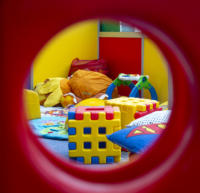
The Society is teaming up with Nipperbout to provide a free crèche at the FIS 2019. The crèche will be available to all children of delegates between the ages of 0 to 12 years.
All registered delegates will be offered the opportunity to make use of these free childcare services, which will be offered on a first-come, first served basis.
Please note the crèche will be closed for lunch and parents are responsible for providing food for their children. Lunch is not provided by the Society or the crèche as part of this offer. It is imperative that you collect your child/children at lunchtime as the staff require a half hour break. Water and healthy snacks will be available during crèche hours. More information to follow.
In order to register, visit the Nipperbout portal.
Members who have already used the system can use their existing account to log in and request to register for the event using the event code: FIS121119
First registrant login: FIS121119
Password: FIS
You can change your password once you have set up your account. Booking is on a first come, first served basis. Confirmation of your booking will be sent prior to the conference.
Please note that you are entering into an agreement with Nipperbout and not the Microbiology Society.
Nipperbout is an award winning event childcare company with over 25 years of experience. For more information please visit their website.
We hope that this assists your attendance at the conference. Should you have any questions, please contact: [email protected]
Email [email protected] for further information.
Edinburgh is a popular destination city whose hotels fill up quickly. So, if you're planning on joining us for FIS 2019, we highly recommend you secure your accommodation and make your travel plans as early as possible.
To support you in securing your accommodation we provide links to our booking and accommodation services via Reservation Highway. This travel and venue agency have secured negotiated rates at hotels to suit a broad range of budgets. A booking form and hotel list is available below for those who prefer not to book online.
If you require any further information for personal or group hotel bookings, please call 01423 525577 (during office hours) or email [email protected] at any time.
By car
If you are travelling using a sat nav, please use the postcode EH3 8EE. The main entrance is on Morrison Street.
By air
Edinburgh International Airport is within 6 miles of the EICC. The Airlink 100 runs between Edinburgh Airport and the city centre every 10 minutes at peak times, with the journey taking 20 minutes. This service starts at 4.30am and runs until 12.22am. Tickets cost £3.50 single and £6.00 return. Delegates are advised to disembark at Haymarket Railway Station and to follow signs for EICC on foot (5-minute walk).
The N22 bus also departs from the Airport and runs every 30 minutes through the night until the Airlink service starts again. For more information about these services, visit the Lothian Buses website.
EICC has an established relationship with Virgin Atlantic, who can offer discounted flights between Edinburgh and London on their new service, Virgin Atlantic Little Red. For more information on discounted flights, visit the Virgin Atlantic website.
By rail
Edinburgh has two railway stations – Waverley and Haymarket. Waverley is the main station, with direct routes to many cities across the UK. For more information on travelling by rail to Edinburgh, visit the London North Eastern Railway or the National Rail websites.
Virgin Trains
Virgin Trains offer discounted group travel for groups of between three and nine passengers travelling together. This currently stands at a 20% discount off Advance tickets booked through their website – for more information, visit the group tickets page of their website.
By bus
Edinburgh's main bus terminal is located at St Andrews Square. Visit Lothian Buses for more information on local bus services.
Coach
For information about travel by coach please visit the National Express website.
Car parking
There are many car parks within close walking distance of the EICC. Please see the EICC website for more details.
Applications for Society Conference Grants are now closed.
A certificate of attendance can be requested at the registration desk during the conference or by email after the event from [email protected].
Federation of Infection Societies Conference 2019 (FIS 2019) has been accredited by the Royal Society of Biology (84 CPD credits), Royal College of Pathologists (41 CPD credits), the Institute of Biomedical Science (category: Professional Activity) and the Royal College of Nursing (24 CPD hours). RCN Accredited until 25 September 2020 – accreditation applies only to the educational content and not to any product. RCN cannot confirm competence of any practitioner.
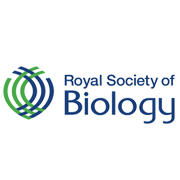
|
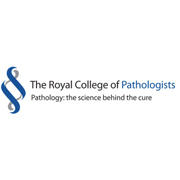
|
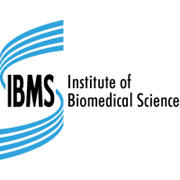
|
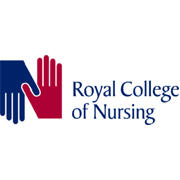
|
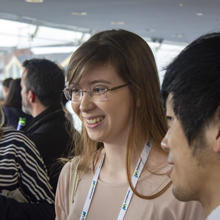
The collaboration catalyst session will be a starting point to foster interaction between trainee and early career microbiologists across the different sectors that the Federation of Infection Societies represent: academic science, clinical, biomedical, nursing and pharmacy trainees. Refreshments will be available during a networking event at the end of the session.
Registration opens from 15:30– 16:00 and there are still places available to attend this networking event. Register your place today.
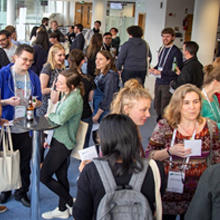
Avoid the rush on Tuesday morning by registering early during our pre-conference welcome drinks and networking event. You can grab a drink and meet your friends and colleagues while collecting your delegate bag and conference programme.
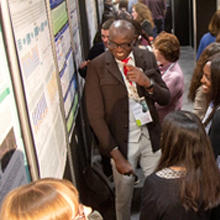
On Tuesday and Wednesday evening at FIS 2019, we will be welcoming you to attend the poster presentations in the Comdale Hall to support your colleagues and extend your networking. Each attendee will be provided with two complimentary drinks ticket and nibbles before you head out to the city for dinner.
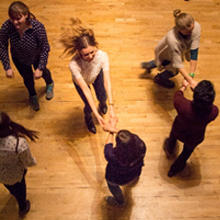
On the final night of FIS 2019 why not join us for dinner and a traditional Ceilidh at The Hub Edinburgh. Guests will enjoy a two-course dinner and a half-bottle of wine, followed by traditional ceilidh dancing with our live ceilidh band and caller from the band The Occasionals. Tickets are limited so secure yours when registering for the event and check at the help desk for any last minute availability.
Tickets are still available for this event. Register your place today.
Schedule for the event is as follows:
20:00 Guests arrive, cash bar open
20:30 Dinner service commence
22:00 Dinner service complete, ceilidh commences
00:00 End time
Exhibiting at this event will offer you an unique opportunity to interact with some of the best and most thoughtful minds working on important current issues facing infectious disease control, prevention, diagnosis and treatment.
Whether your aim is to connect with key contacts and generate business leads, or host an industry sponsored session to inform and encourage debate, we have a range of packages to suit. Download our exhibitor pack below or contact [email protected]
FIS 2019 is approved by EthicalMedTech, MedTech Europe’s compliance portal. MedTech Europe is the European trade association representing the medical technology industries from diagnosis to cure. It is dedicated to ethics and compliance projects in the MedTech industry.
Detailed information about available exhibition packages can be found in the Exhibition pack below.
Download the floorplan showing the available exhibition spaces or contact [email protected]

|

|

|

|

|

|

|
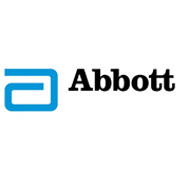
|
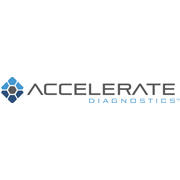
|
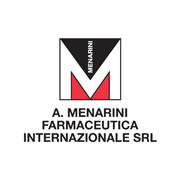
|
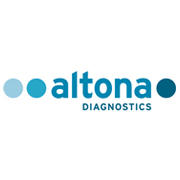
|
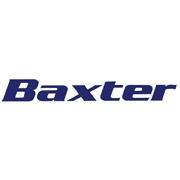
|
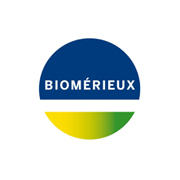
|
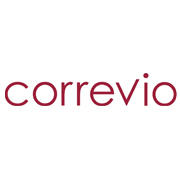
|
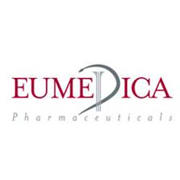
|
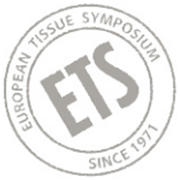
|
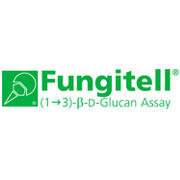
|
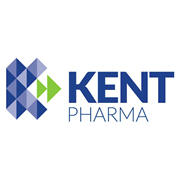
|
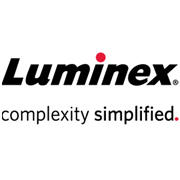
|

|
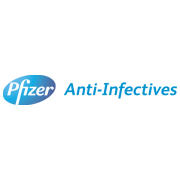
|
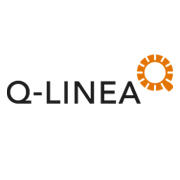
|
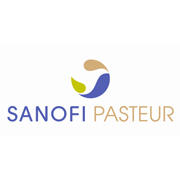
|
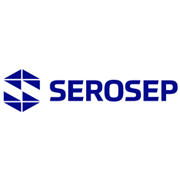
|
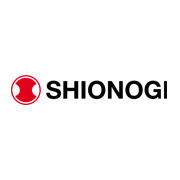
|
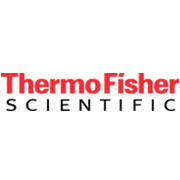
|
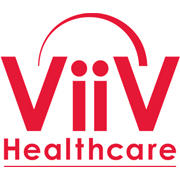
|
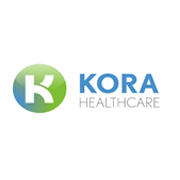
|
|
|
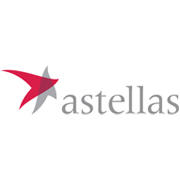
|

|

|